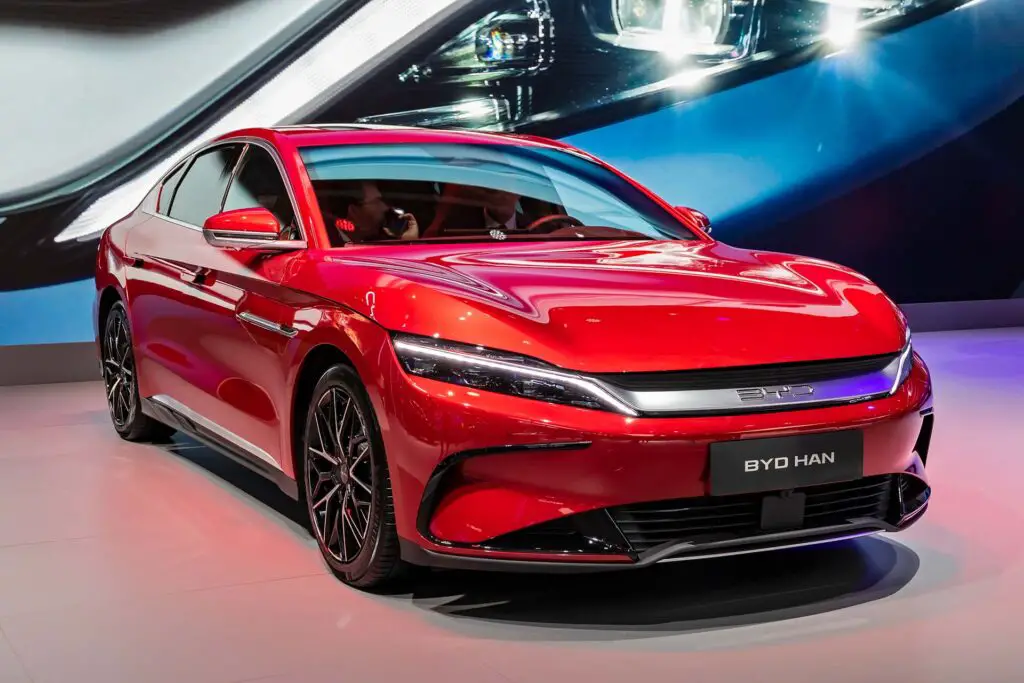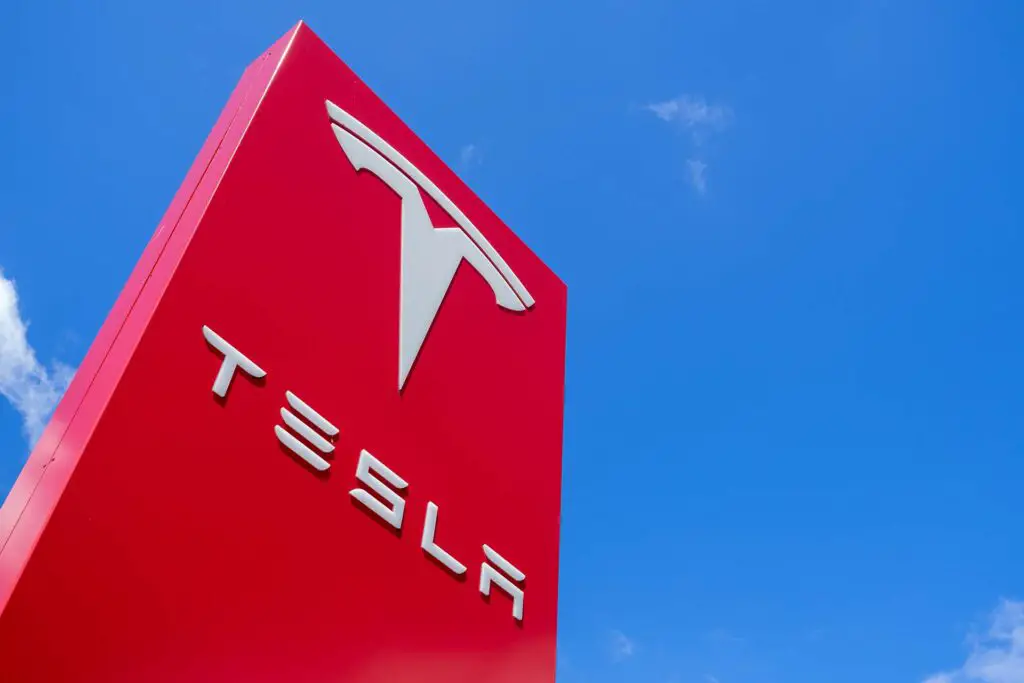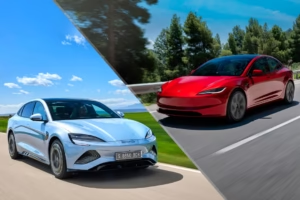In a remarkable shift within the electric vehicle (EV) industry, BYD will become the biggest EV maker. That is just a fact. Outselling Tesla with a record 526,000 battery-only vehicles in the final quarter of 2023, BYD’s trajectory is reshaping the global EV market. This achievement, backed by a total annual sale of more than 3 million new EVs, marks BYD’s ascent from a modest Chinese entity to a global EV powerhouse.
What are The BYD’s Recent Milestones?
BYD’s journey to the forefront of the EV market is marked by impressive sales achievements and strategic growth. In the final quarter of 2023, BYD sold 526,000 battery-only vehicles, surpassing Tesla’s sales figures for the first time. This milestone is part of BYD’s larger success story, which includes selling over 3 million new energy vehicles in 2023.
So, if you are wondering if EVs are the future – the answer is YES! But how did BYD become one of the most popular manufacturers of electric cars?
The company’s success can be attributed to a combination of factors. For example, strategic pricing, focusing on the Chinese domestic market and expanding globally. BYD’s approach has been characterized by aggressive marketing, competitive pricing, and leveraging its battery manufacturing capabilities.
These strategies have not only propelled the company to new heights in the EV market but also positioned it as a serious contender against established automotive giants.
What are The Factors Behind BYD’s Success?
BYD’s ascent as a leading EV manufacturer is underpinned by innovative technology and astute market strategies. At the core of the success lies its groundbreaking advancements in EV technology, particularly in battery efficiency and electric powertrains.
This focus on innovation has enabled BYD to offer a range of competitive and appealing EV models. Additionally, market strategies, which include smart global expansion and tapping into emerging markets, have been pivotal. By strategically positioning itself in key markets and leveraging partnerships, BYD has expanded its global footprint.

Tesla vs. BYD – A Technology, Market, and Consumer Analysis
When comparing Tesla and BYD, their approach to development stands in stark contrast. Tesla has been a frontrunner in advanced autonomous driving and battery technology.
On the other hand, BYD’s focus has been on enhancing battery efficiency and electric powertrain development. With a strategy geared towards competitive pricing and a strong market presence in China.
| Feature | Tesla | BYD |
| Technology | Advanced autonomous driving features, cutting-edge battery tech | Innovative battery efficiency, electric powertrain development |
| Market Strategy | Premium branding, focus on high-end models, global reach | Competitive pricing, strong domestic market focus, global expansion |
| Consumer Reception | High brand loyalty, appeal in Western markets | Growing popularity, particularly in China and emerging markets |
BYD vs. Tesla – A Look into Price and Performance
BYD has led the Chinese EV market since 2015, outperforming rivals, including Tesla, primarily through competitive pricing. Tesla’s models, ranging from $40,000 to $120,000, are significantly more expensive than BYD’s offerings. In China, for instance, Tesla’s base Model 3 starts at around $32,375, offering a 272-mile range and 140 mph top speed.
In contrast, BYD’s Seagull, priced at approximately $10,392 in China, offers an affordable alternative with a decent performance profile. It speeds up to 81 mph and offers two battery options, with the larger one providing a range of up to 251 miles.
Both brands boast strong safety credentials, with Tesla’s Model Y and BYD’s Atto 3 receiving a five-star ANCAP safety rating in 2022. This comparison not only highlights the competitive EV market landscape but also underscores the importance of balancing cost, performance, and safety in winning consumer trust and preference.

What are BYD’s Strategic Moves for Global Market Expansion?
The company’s global market expansion is a masterclass in strategic planning and execution. BYD has forged strategic partnerships and made smart investments in key regions, adapting its product offerings to meet diverse consumer needs.
This includes establishing production facilities in strategic locations like Europe, where it recently announced plans for a new EV factory in Hungary, and expanding its dealer network. In Asia, BYD is leveraging its competitive pricing to gain a foothold in rapidly growing markets.

The Future of EVs and BYD’s Role – Steering Towards a Sustainable Horizon
As the electric vehicle (EV) market enters a dynamic phase of growth, BYD’s role in shaping this future becomes increasingly pivotal. This Chinese automaker, once a minor player, is now steering the EV industry toward new horizons. With its innovative strategies and cutting-edge technology, the company will showcase why electric cars are better.
At the heart of BYD’s success lies its relentless pursuit of technological excellence. The company has been constantly pushing the boundaries of efficiency and sustainability. This focus on innovation is not just about creating better vehicles. It’s about redefining what EVs can be.
The world is at a crucial juncture in its journey towards sustainability, and BYD is leading the charge. Its vision goes beyond mere vehicle manufacturing. It encompasses a broader commitment to green energy and eco-friendly transportation solutions. This commitment is set to influence not just market trends but also policy decisions and consumer attitudes towards sustainability.
As BYD continues to expand its global footprint, it’s clear that the company is not just participating in the EV revolution – it’s leading it. With a keen eye on the future, BYD is not just selling cars. It’s selling a vision of a cleaner, greener, and more sustainable future. These reasons are why BYD will become one of the biggest car companies in the world.

What BYD’s Rise Means for the EV Industry
BYD’s ascent to potentially become the biggest EV maker is more than a corporate success story. It’s a paradigm shift in the EV industry. This rise reflects the increasing global demand for sustainable transportation and the growing competitiveness of the EV market.
BYD’s journey from a modest Chinese company to a global EV leader underscores the industry’s dynamism and the potential for innovation-driven growth. As it continues to advance, it not only challenges existing market leaders like Tesla but also inspires new standards in EV technology and sustainability.
BYD’s trajectory is a clear indicator that the future of the automotive industry lies in electric mobility, driven by innovation, affordability, and a commitment to environmental sustainability.








